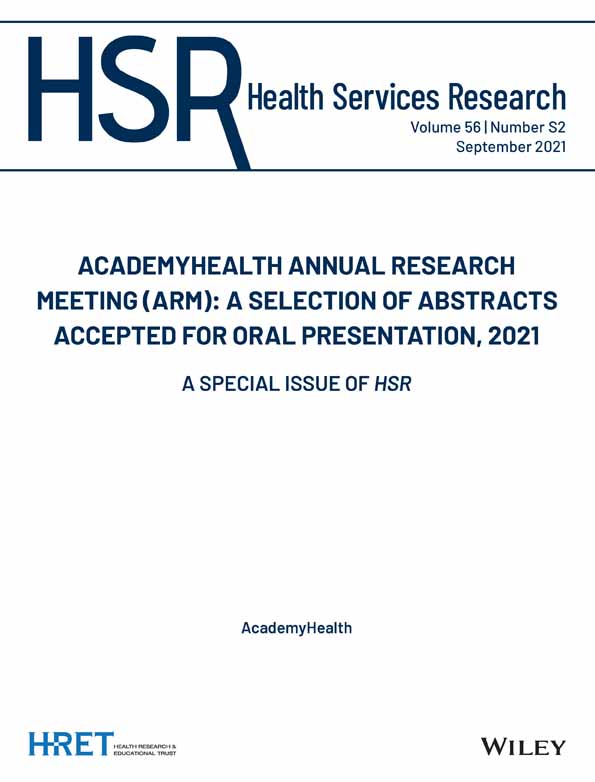“Being Sick Is a Full-Time Job”: A Job Analysis of Managing a Chronic Illness
[Article updated on November 6, 2021 after first online publication: The author list was corrected to include Jessica Mesmer, Martha Andrews, Barbara Lutz, and Kori Meyer.]
Abstract
Research Objective
The purpose of this study was to identify the duties, tasks, knowledge, skills, abilities, and resources needed for patients to manage chronic illness.
Self-management is a struggle for individuals with chronic illnesses. For many, the work involved in managing a chronic illness can feel like a full time job. The multitude of tasks and activities that are required are often not captured by the construct of self-management. This study explored managing a chronic illness in an innovative way by combining both a human resources and nursing lens, with the premise that managing a chronic illness is work and it should be analyzed as a job.
Study Design
In this descriptive qualitative study, 3 focus groups (FGs) with a total of 29 participants, from across the U.S., were conducted in person (FG 1) or via video conferencing (FG 2 and 3) due to COVID 19. A recruitment flyer was shared via email to a random selection of university employees in the southeastern U.S. and posted on Facebook pages of the research team. Nominal group technique was used to collect focus group data about activities engaged in managing their chronic illnesses, health, and healthcare. Data were analyzed using thematic analysis. Themes were used to create a job description identifying the duties, tasks, knowledge, skills abilities, and resources needed for chronic illness self-management.
Population Studied
People 18 years of age or older with at least one chronic illness that is currently being managed by a healthcare provider.
Principal Findings
The job of a patient included 5 duties: self-care, relationship management, resource management, coordination, and research/education. Each duty encompassed 6 tasks. Each task included the associated knowledge, skills, abilities, and resources necessary to be successful completing the task identified. For example, below is one of the six tasks related to coordination:
| Duty: Coordination- Organize and schedule all appointments, paperwork, and medical history | ||
|---|---|---|
| Task: | Knowledge, Skills and/or, Abilities Needed to Perform Task | Resources Needed to Perform Task |
| Communicate and advocate for self by asking questions, relaying medical history with providers, office staff, and others (friends, family, and employers), asking for help when needed. |
● Illness knowledge ● Health care system knowledge ● Health literacy ● Computer literacy ● Communication (includes oral and written) skills ● Social Skills ● Assertiveness skills |
● Potential support persons/groups ● Computer/Internet ● Phone ● Information ● Time ● Energy |
Conclusions
Health care providers focus on helping patients through symptom monitoring and management, lifestyle changes (i.e. diet and exercise), and treatment/medication adherence. However, individuals with chronic illness described many more tasks associated with self-management. Without considering a patient work through a holistic lens that includes these additional tasks and responsibilities, the success of self-management interventions is likely limited.
Implications for Policy or Practice
Developing evidence-based interventions that address the key knowledge, skills, abilities, and resources needed to successfully carry out self-management activities are needed to reduce the burden of managing chronic illnesses, improve self-management behaviors, and enhance patient quality of life.
Primary Funding Source
University of North Carolina Wilmington.




